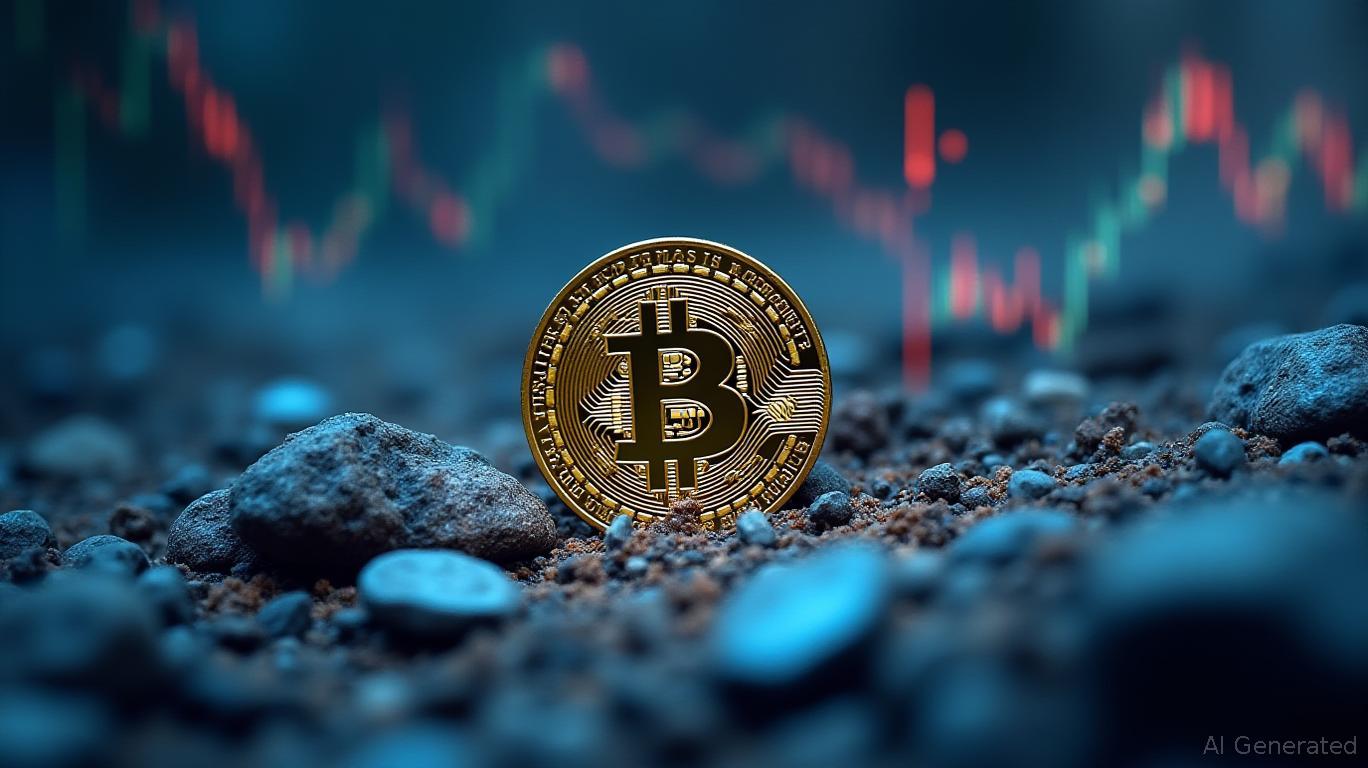Deutsche Telekom's Blockchain Initiative: Safeguarding the Decentralized Future of AI
- Deutsche Telekom joins Theta Network as an enterprise validator, the first telecom company to operate a node on the blockchain platform. - Theta's EdgeCloud leverages distributed GPU resources to enable low-latency AI, media, and real-time data processing applications. - Telekom's blockchain engagement includes Ethereum/Polkadot validation and Bitcoin mining, reflecting its Web3 infrastructure strategy. - The partnership highlights blockchain's shift toward enterprise infrastructure, offering cost-effect
Deutsche Telekom AG, recognized as one of the leading global telecommunications companies, has become an enterprise validator on
Theta Network’s hybrid cloud-edge solution, Theta EdgeCloud, utilizes distributed GPU power to lower latency and expenses for applications like generative AI, 3D rendering, and live data processing. Deutsche Telekom’s involvement highlights the increasing intersection between telecom infrastructure and blockchain, especially in AI-powered edge computing. Dirk Roeder, who leads Telekom MMS Web3 Infrastructure and Solutions, pointed out that Theta’s decentralized system fits the company’s emphasis on “reliable, secure infrastructure,” and mentioned that the collaboration “opens up new opportunities in AI and media innovation,” as reported by Investing.com.

Deutsche Telekom’s engagement with blockchain is not unprecedented. Through its subsidiary Deutsche Telekom MMS, the company has previously run validator nodes for
Theta Labs, the team behind Theta Network, stressed the strategic value of Deutsche Telekom’s participation. CEO Mitch Liu remarked that the telecom’s move to operate a validator node “demonstrates Theta’s rising significance as a leader in decentralized cloud services for AI, media, and entertainment,” according to Investing.com. The platform’s hybrid approach, which merges community-operated edge nodes with cloud partners, is intended to make high-performance computing more accessible, as reported by
This alliance also marks a broader trend in how corporations are embracing decentralized technologies. As the costs of cloud computing climb alongside the growing need for AI, platforms like Theta provide scalable and economical alternatives. Deutsche Telekom’s validator address—0x5e4a3f43c34f66768961f73eccef984b71bb692a—is already live on the Theta blockchain, reflecting the company’s transparent approach, as noted by Investing.com. Experts believe that such partnerships could accelerate enterprise adoption, especially in sectors that demand high-performance, low-latency computing, according to Coinotag.
Disclaimer: The content of this article solely reflects the author's opinion and does not represent the platform in any capacity. This article is not intended to serve as a reference for making investment decisions.
You may also like
Cardano News Update: ADA's $0.60 Support at Risk as Large Holders Intensify Bearish Momentum
- Cardano (ADA) fell below $0.58 amid whale sell-offs and weak trader sentiment, signaling broader bearish momentum. - Whale activity drove 100M+ ADA offloads, pushing price below 200-day EMA and triggering 10-15% correction risks. - Technical indicators (RSI=32, ADX=43.21) and declining active addresses (24,280) confirm downward pressure. - Founder Charles Hoskinson blamed community inaction for DeFi struggles, worsening near-term uncertainty. - Short positions dominate (2.8:1 ratio) with key support at $

Bitcoin Updates Today: Slower Bitcoin Accumulation Drives Broader System Integration Efforts
- Coinbase's Q3 2025 BTC purchase (2,772 BTC) and $1.9B revenue surge highlight institutional growth amid Trump-era regulatory support. - Broader slowdown in institutional BTC buying, ETF outflows, and geopolitical risks temper bullish momentum despite CEO's commitment. - MicroStrategy's Saylor predicts $150k Bitcoin by year-end, citing SEC tokenized securities progress, but faces stock declines mirroring BTC's dip. - Miners pivot to AI infrastructure, diversifying revenue as Bernstein upgrades valuations

Delicate Busan Agreement Relieves Trade Strains, Geopolitical Issues Remain Unsettled
- U.S. and China sign "Busan Truce" trade deal in South Korea, reducing tariffs and easing rare-earth export controls amid global economic tensions. - Agreement includes 10% U.S. tariff cuts on Chinese goods and China's one-year suspension of retaliatory tariffs, boosting agricultural trade and tech sector access. - Deal aims to stabilize economies ahead of 2026 tech negotiations but faces fragility due to past noncompliance, unresolved semiconductor disputes, and geopolitical risks. - Market optimism foll

Berachain validators halt network for emergency hard fork to fix Balancer V2-related exploits
